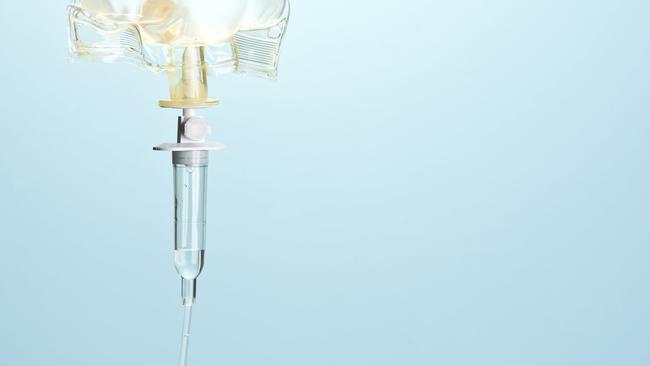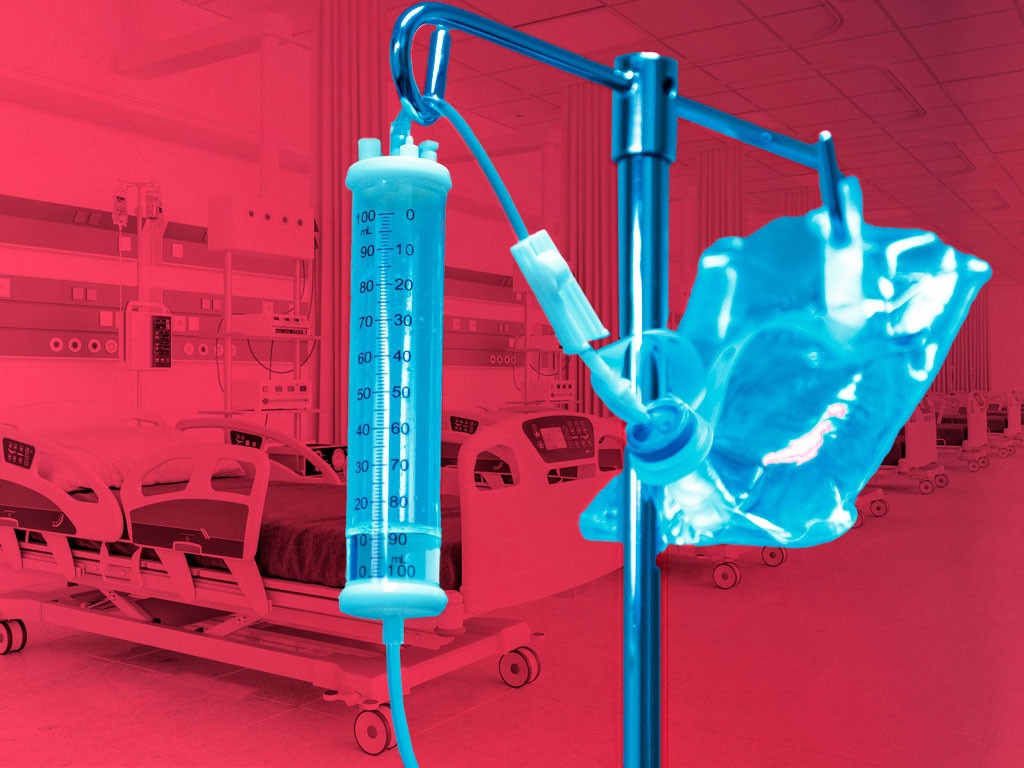Nation’s top surgical college calls for national strategy over saline
The nation’s surgical college is calling for a nationally coordinated strategy on saline products.

The nation’s surgical college has described the ongoing national IV fluids shortage as “a serious threat to healthcare services across Australia” that if it persists may blow out elective surgery waiting lists and lead to the cancellation and delay of operations.
The Royal Australasian College of Surgeons has called for a nationally co-ordinated strategy for the future procurement of vital medicines as the federal government continues to work to manage the saline shortage crisis in hospitals that has triggered the rationing of IV fluids and major changes to clinical practice.
RACS councillor and professional standards and fellowship services committee chairwoman Christine Lai said doctors were appreciative of the work of the Therapeutic Goods Administration in its efforts to alleviate the impact of the shortage, including the approval of several overseas-registered alternative saline fluids. A special response group set up by federal Health Minister Mark Butler is working urgently to manage the crisis.
“This needs to be the first step in a nationally co-ordinated strategy that is informed by healthcare professionals,” Dr Lai said. “The government needs to clearly communicate how it is addressing the current situation to clinicians and the healthcare sector, and develop a comprehensive strategy to ensure medicines supply at all stages of the pipeline. Longer term, we should consider the development of onshore medical manufacturing to insulate Australia from future medicines supply shortages.”
The Australian Medical Association said co-ordinated government efforts on IV fluid shortages were providing “growing reassurance” that patients would continue to be able to access care across the health sector.
Mr Butler said all jurisdictions were “bringing unprecedented collaboration to the issue, with a cross-jurisdictional response group convened by all states and territories and the commonwealth and including the views of the broader health system through representation from private hospitals and primary care”.
The response group is meeting weekly, or more frequently if required, while supply remains constrained in Australia.
“There have been global supply limitations of IV fluids due to unexpected increases in demand and manufacturing capacity constraints,” Mr Butler said.
“Recent advice from states and territories as well as private hospital representatives indicates that the situation has stabilised in most jurisdictions.
“The TGA is aware that jurisdictions are alerting staff of the situation and instructing all staff to use IV stock judiciously. However, decisions on service prioritisation of available IV fluid stock are all matters managed at the state and territory level.”
Hospital emergency protocols are instructing staff to ration saline to ensure there is enough on hand for critical patients. IV fluids are being minimised in day surgery, fasting for surgical patients is being minimised to reduce the need for fluid replacement and medicines are being administered via alternative methods.
The TGA has blamed “global supply limitations, unexpected increases in demand and manufacturing capacity constraints” for the shortage of IV fluids. No other countries are reporting any critical shortages of IV fluids.
Baxter Healthcare, which supplies about 75 per cent of Australia’s market for saline, has been hit by a demand spike. Global shipping interruptions have hit overseas importers of the product that supply the rest of the market, triggering additional stockholding pressures and backorders.
While federal health authorities say the crisis is easing, saline fluids are expected to remain in lower supply for the rest of the year. The affair has raised questions about co-ordination and procurement of vital medicines, which is done state by state.
Royal Australian College of General Practitioners expert committee – quality care chairman Mark Morgan said the federal Department of Health needed to clarify which organisation was ultimately responsible for ensuring adequate supplies of saline and outline what early warning systems were in place when shortages hit.
“I think Australia should take a disaster planning approach to essential supplies … a lot can be learnt from the disaster planning we have in this country and the same should happen for medical supplies,” Professor Morgan said.






To join the conversation, please log in. Don't have an account? Register
Join the conversation, you are commenting as Logout